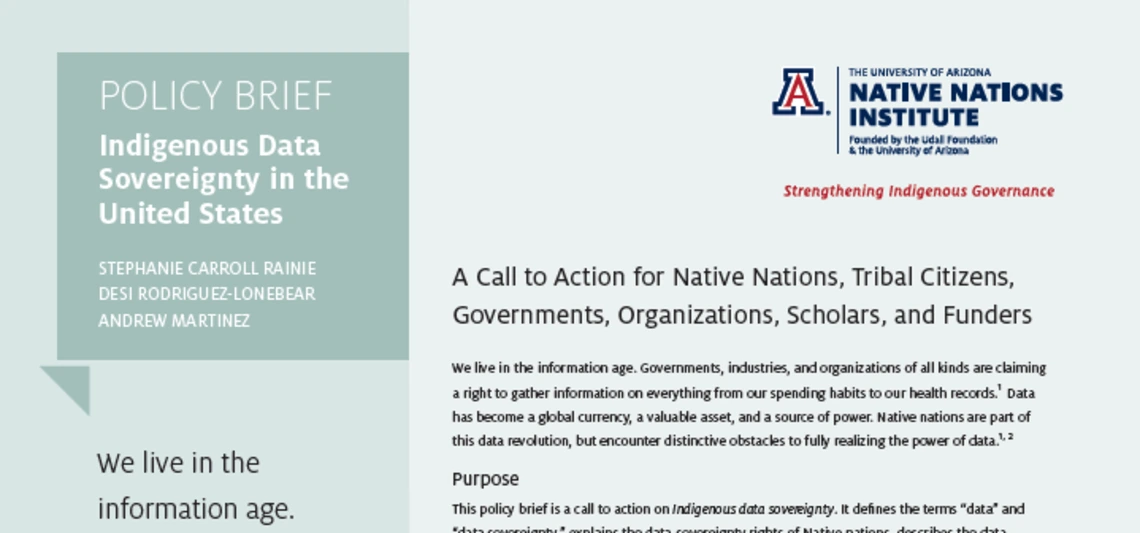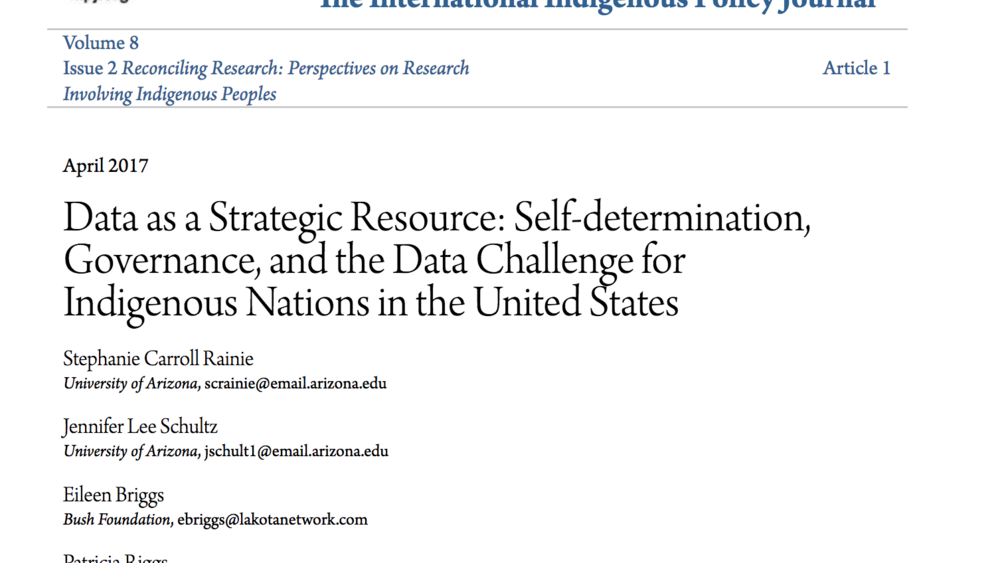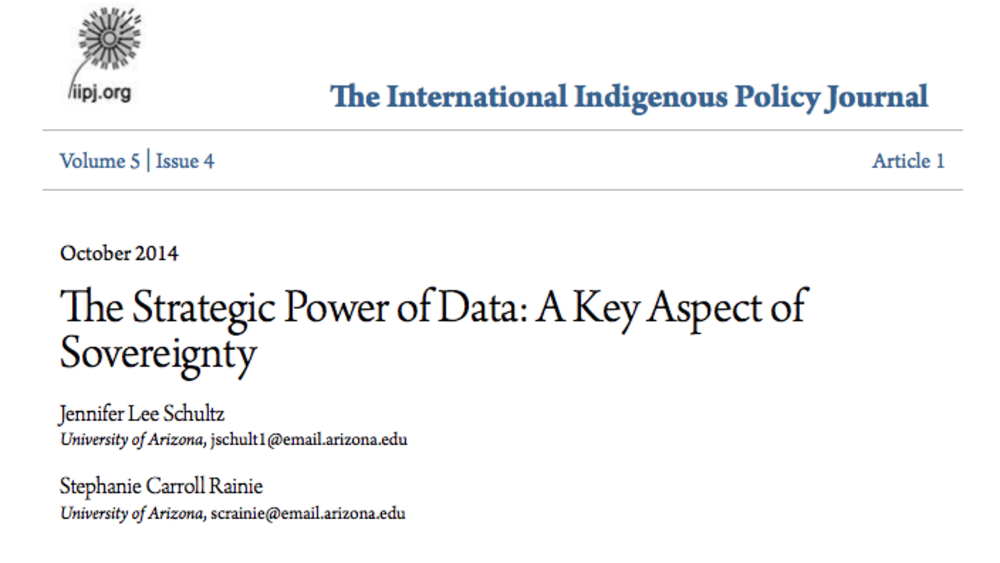We live in the information age. Governments, industries, and organizations of all kinds are claiming a right to gather information on everything from our spending habits to our health records. Data has become a global currency, a valuable asset, and a source of power. Native nations are part of this data revolution, but encounter distinctive obstacles to fully realizing the power of data.
Purpose
This policy brief is a call to action on Indigenous data sovereignty. It defines the terms “data” and “data sovereignty,” explains the data-sovereignty rights of Native nations, describes the data history of Native nations, and offers recommendations for decolonizing data and asserting Indigenous data sovereignty.
Additional Information
Rainie, Stephanie Carroll, Desi Rodriguez-Lonebear, and Andrew Martinez. 2017. Policy Brief: Indigenous Data Sovereignty in the United States. Tucson: Native Nations Institute, University of Arizona.



